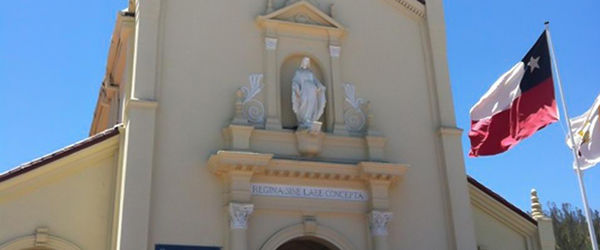While there is a growing sense that more Americans profess no religious preference than in past generations, researchers are still trying to judge for themselves the meaning behind the numbers their research has generated.Even the title of a study unveiled Aug. 8 during a luncheon forum at the Pew Research Center's Religion & Public Life Project — "American's Weakening Ties to Organized Religion, 1973-2012: Generations & Politics" — could itself be open to debate.The study's authors, sociology professors, Michael Hout of New York University and Claude S. Fischer of the University of California-Berkeley, said their research suggests that older Americans are dying off, they are being replaced in the population by younger Americans who are not as religious.This demographic trend, they said, accounts for about 60 percent of the increase of "nones" — those who described themselves as atheists, agnostics, or have no particular religious preference — in the U.S. population, which they set at 20 percent of all Americans.Much of the other 40 percent, they added, can be traced to the rise of the "religious right" and its political stands on social issues, leading many Americans to say, according to Fischer, "If that's what religion means, count me out."But Gallup Organization editor-in-chief Frank Newport, another panelist at the Pew luncheon, said the numbers may mean that nones are "freer" than in past years to disclose their attitude toward religion.Newport said there was one Gallup poll conducted in the 1950s — the peak of U.S. religious identity over the past century — "where we had zero percent nones, rounded down." That survey, he added, was conducted in person, and respondents might not have been as comfortable in telling an interviewer they had no religious affiliation.But what the numbers mean in the new study is still open to further debate and examination.The Hout-Fischer study revealed that more than half — 51 percent — of the nones say they pray at least once a month. On the other hand, only10 percent say that are looking for a religion that is right for them.But it is not as if nones have traded organized religion for some other faith system. The highest percentage for any kind of replacement cited was 30 percent, and that took in such varied concepts as yoga-as-religion, "spiritual energy," reincarnation, and belief in some kind of "evil eye."Panelist Greg Smith, the director of Pew's religion surveys, noted the rate of religious affiliation has historically had peaks and valleys depending on one's age group, with affiliation bottoming out once grown children are on their own for the first time, with spikes for the marriage and child-baptismal years. The affiliation numbers slide downward again until age 50 or so, then slowly climb as people age.But with 76 million baby boomers — the generation that first found it comfortable to express no religious identification — joining the ranks of senior citizens, "we might see a reversal of these trends" if they follow the patterns set by their forebears, Smith said.The answers given on religious affiliation changed in 2007 when Pew changed the way it asked questions. Before 2007, according to Smith, survey respondents had to volunteer they had no religious preference. But when the lack of religious preference was included among the choices, the number jumped from 12 percent to 15.6 percent.The impact on Catholics and Catholicism is equally unclear, given the number supplied in the Hout-Fischer study.Those who identified themselves as Protestants since 1973 have dropped from 62 percent to 50 percent. The dip among Catholics is much less, from 27 percent to 24 percent.But, Hout said, the current numbers should be much bigger. "The Catholics are in much more trouble," he said. Based on birth rates, "by all rights, one-third of all Americans should be Catholics right now," Hout added, saying the Catholic Church is losing members both to evangelical Protestant faiths and to the nones.Smith said, "There are four people who say they are former Catholics to one person who say they have converted to Catholicism," adding there are "demographic forces that offset" these losses. Newport put it this way: "Thank goodness for the Spanish invasion" of Latin Americans now in the United States.Newport, who professes a more positive view of faith and religiosity in America, wrote a book last year titled "God Is Alive and Well: The Future of Religion in America." Hout held up a copy of the book and said, "God is alive and well. It's the churches that are having a problem."—CNS

